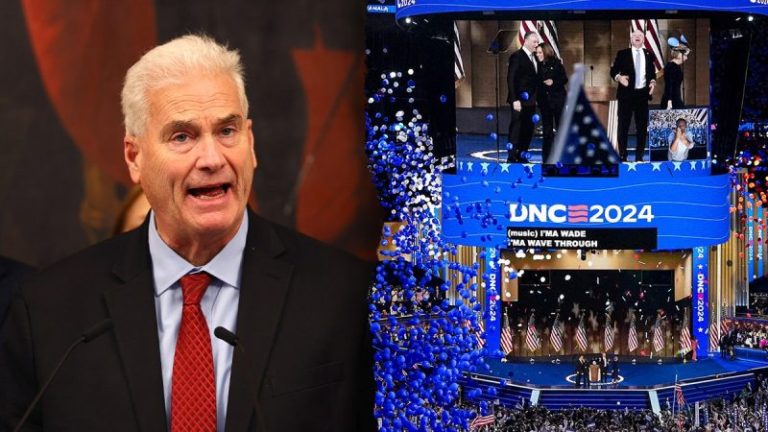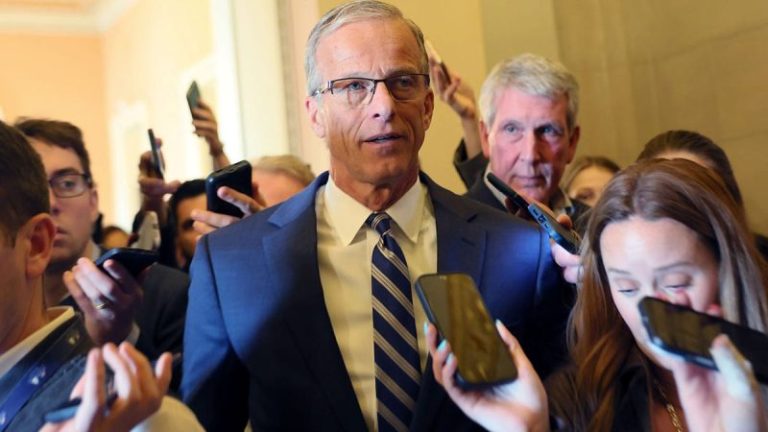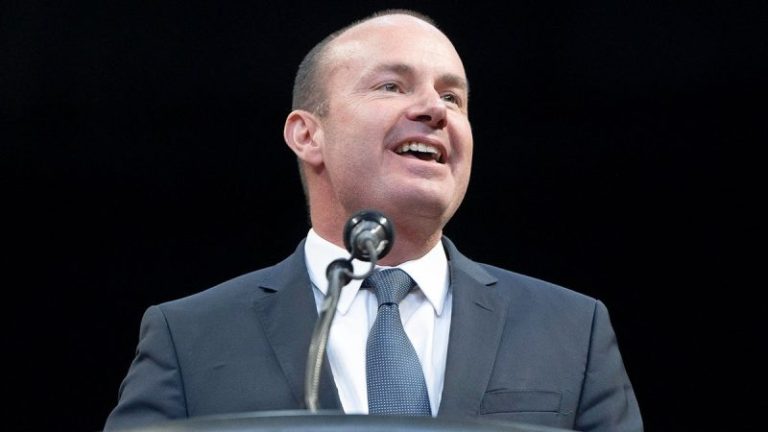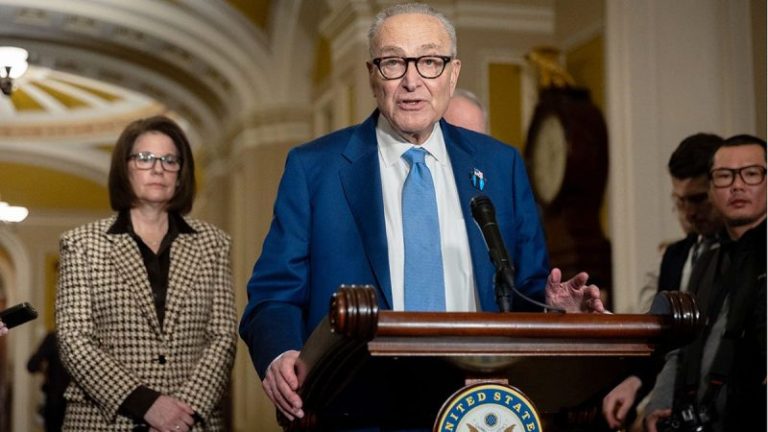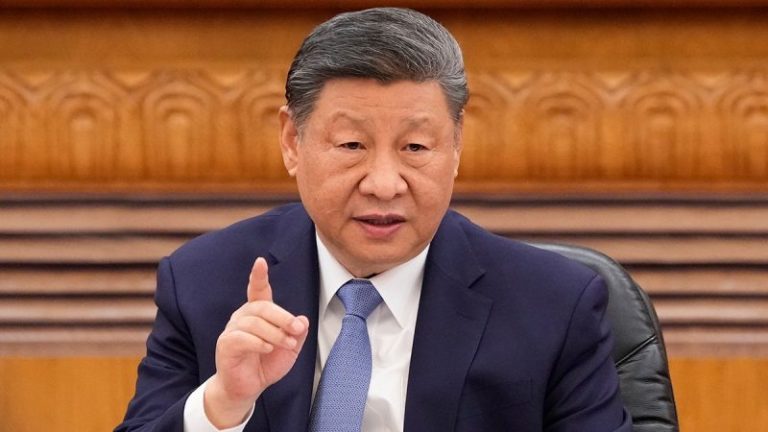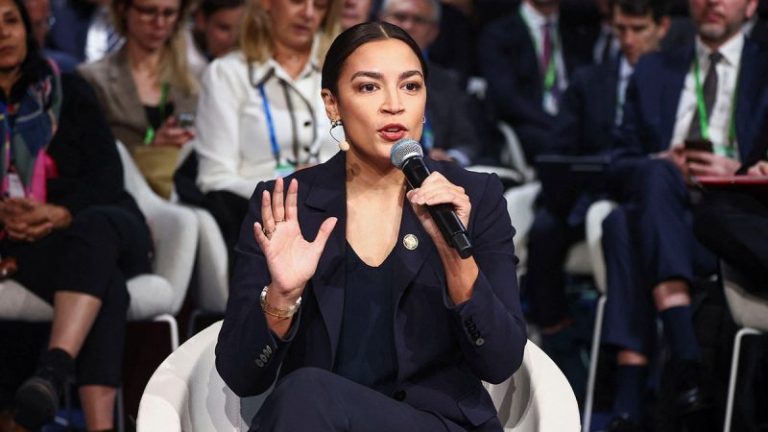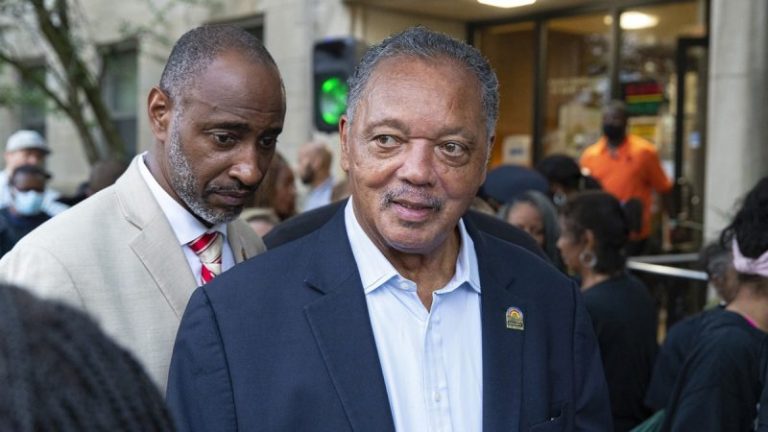The State Department’s allegation that China conducted a yield-producing nuclear test in 2020 is reigniting debate in Washington over whether the United States can continue its decades-long moratorium on nuclear weapons testing.
U.S. officials warned that Beijing may be preparing tests in the ‘hundreds of tons’ range — a scale that underscores China’s accelerating nuclear modernization and complicates efforts to draw Beijing into arms control talks.
Under Secretary of State for Arms Control and International Security Thomas DiNanno said recently that the United States has evidence China conducted an explosive nuclear test at its Lop Nur site.
‘I can reveal that the U.S. government is aware that China has conducted nuclear explosive tests, including preparing for tests with designated yields in the hundreds of tons,’ DiNanno said during remarks at the United Nations Conference on Disarmament.
He added that ‘China conducted one such yield-producing nuclear test on June 22 of 2020.’
DiNanno also accused Beijing of using ‘decoupling’ — detonating devices in ways that dampen seismic signals — to ‘hide its activities from the world.’
China’s foreign ministry has denied the allegations, accusing Washington of politicizing nuclear issues and reiterating that Beijing maintains a voluntary moratorium on nuclear testing.
But the accusation has sharpened questions about verification, deterrence and whether the U.S. stockpile stewardship program — which relies on advanced simulations rather than live detonations — remains sufficient in an era of renewed great-power nuclear competition.
Why small nuclear tests are hard to detect
Detecting small underground nuclear tests has long been one of the thorniest problems in arms control.
Unlike the massive atmospheric detonations of the Cold War, modern nuclear tests are conducted deep underground. If a country uses so-called ‘decoupling’ techniques — detonating a device inside a large underground cavity to muffle the seismic shock — the resulting signal can be significantly reduced, making it harder to distinguish from natural seismic activity.
That vulnerability has been debated for decades in discussions over the Comprehensive Nuclear-Test-Ban Treaty, which China signed but never ratified. Even a relatively small underground detonation can provide valuable weapons data while remaining difficult to detect.
‘If you detonate a device inside a large underground cavity, you can significantly attenuate the seismic signature,’ said Chuck DeVore, chief national initiatives officer at the Texas Public Policy Foundation and a former Pentagon official. ‘That makes it much harder to detect with confidence.’
Are simulations enough?
China signed the Comprehensive Nuclear-Test-Ban Treaty in 1996 but has not ratified it, and the treaty has never entered into force. It has maintained a voluntary testing moratorium — a commitment that a yield-producing detonation would contradict.
As China expands its nuclear arsenal and major arms control frameworks falter, the Cold War principle of ‘trust but verify’ is under growing strain.
‘The arms control community should feel thoroughly discredited at this point,’ DeVore said, arguing that policymakers should not assume Western restraint will be reciprocated by Beijing.
For decades, the U.S. has relied on the Stockpile Stewardship Program — advanced computer modeling and simulations — to ensure its weapons remain reliable without explosive testing. DeVore warned that this approach may no longer be sufficient if competitors are conducting live detonations.
‘The question presupposes that we only live in a technical world,’ he told Fox News, arguing that relying solely on simulations while rivals ‘cheat at every treaty they’ve ever signed’ risks leaving the United States behind.
DeVore also pointed to what he described as a growing institutional challenge.
‘Virtually everyone who had direct experience with live testing is now retired,’ he said. ‘Rebuilding that expertise would take years.’
But not all nuclear experts agree that resuming testing is the answer.
Henry Sokolski, executive director of the Nonproliferation Policy Education Center, cautioned that a return to live detonations would be far more complex and costly than critics of the current system suggest.
‘Yield testing isn’t a magic switch,’ Sokolski said. ‘If you want meaningful reliability data, you don’t do one test — you do many.’
He noted that the United States conducted more than 1,000 nuclear tests during the Cold War, building a deep database that now underpins the program. Restarting that process, he argued, would likely require years of preparation and significant funding before yielding strategic benefits.
‘The debate isn’t pro-nuclear weapon versus anti-nuclear weapon,’ Sokolski said. ‘It’s about what’s technically necessary and what’s economical.’
A debate inside the weapons complex
Sokolski said the disagreement extends even within the U.S. nuclear weapons complex.
‘Certainly at one of our major labs that likes using calculations — that’s Livermore — they would say you’re home,’ he said, referring to confidence in advanced simulations and hydrodynamic modeling.
Others place greater weight on empirical validation and preserving the option of live testing.
The dispute, he said, is not ideological but technical — centered on confidence levels, cost and long-term strategic planning.
Allies and the credibility question
The implications extend beyond Washington and Beijing.
Sokolski warned that the credibility of ‘extended deterrence’ — the U.S. commitment to defend allies under its nuclear umbrella — could come under strain if doubts grow about American resolve or capability.
‘Do they think you’re going to come to their defense?’ Sokolski said. ‘If they don’t, it doesn’t matter how reliable your weapons are, extended deterrence isn’t going to work very well.’
Allies such as Japan and South Korea long have relied on U.S. nuclear guarantees rather than pursuing independent arsenals. Any perception that the balance is shifting could complicate regional stability and long-standing nonproliferation efforts.
The policy crossroads
For now, U.S. lab directors continue to certify that the American arsenal remains safe, secure and reliable without explosive testing. But Heather Williams, director of the Project on Nuclear Issues at the Center for Strategic and International Studies, said sustained testing by competitors — particularly absent transparency — could alter that calculus.
‘If Russia and China continue their nuclear testing activities without providing some sort of transparency, then the technical community might make a different assessment,’ she said.
The debate confronting U.S. policymakers is not simply whether to test, but under what conditions testing would meaningfully strengthen deterrence rather than accelerate competition.
Trump previously has suggested the U.S. should ensure testing ‘on an equal basis’ with competitors, though his administration has not formally announced a policy shift.
Trump in October 2025 suggested the U.S. should consider resuming nuclear weapons testing ‘on an equal basis’ with other powers, and at one point said that if others were testing, ‘I guess we have to test.’
The president did not clarify whether he meant full nuclear explosive detonations, which the U.S. has not conducted since 1992, or other forms of testing such as delivery system evaluations that do not involve nuclear explosions. Any return to explosive testing would represent a significant shift in U.S. policy.
The White House did not immediately return a request for comment.
This post appeared first on FOX NEWS

